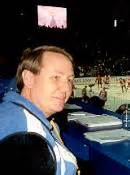Parents can assist their children in developing their talents by using the following tips.
At age 5, Megan Quann hated swimming because she was afraid to put her head underwater. She also hated swimming lessons, but her father asked her to continue taking them through the summer. By the end of the summer, Megan had won a swimming meet and was excited about continuing her swimming career.
Today, we recognize Megan Quann (Jendrick) as one of America’s great Olympic champions. In her swimming career, she won two gold medals at the 2000 Summer Olympics and a silver medal at the 2008 Summer Olympics. She also set 27 American records and four world records.
How can parents help their children become the next Megan Qyann? Here are three recommendations.
Help your child develop a winning attitude. John Naber, ABC broadcaster and winner of four gold medals in the 1976 Olympic Games in Montreal, observed: “The difference in finishing first, second, or third is measured in fractions, and you can spot them on the starting blocks. There are three levels: the swimmer will win and is only concerned about his actions. There’s the one fighting to win but will probably finish second, and he’s very concerned about what the first swimmer will do. And then there’s the guy who will finish third who doesn’t care what anybody does because he’s out there on a lark. The one who wins the gold medal is the one who expects to perform well.” The child who succeeds in any field of endeavor–sports, music, science–expects to succeed. Parents lead in encouraging their child’s success-oriented attitude by helping develop their talents and nurturing healthy self-esteem.

Carl Lewis in Paris
Carl Lewis, one of the Paris 2024 Olympic torchbearers, said the following about developing a winning attitude: “I want to be remembered as a person who felt there was no limitation to what the human body and mind can do and be the inspiration to lead people to do things they never hoped to do.”
Develop a list of talent-building activities. Wendy Schwartz, author of How to Recognize and Develop Your Children’s Special Talents, says, “Parents can be critical in helping their children develop their talents by working with them at home. Parents can also make schools aware of their children’s talents and work with them to ensure they are in a program that intellectually challenges them and responds to their educational and emotional needs.”
Wendy Schwartz advises: 1) Set high academic goals for their children. Tell them that success is possible and that they will benefit later in life from doing well in school; 2) Find a mentor in your family or community who can help your children develop their talents and be a role model for academic achievement; 3) Take a parenting course in the community or at school that teaches how to develop children’s talents; 4) Pay attention to what your child likes, such as a hobby, drawing, or working with numbers, and help them develop those skills; and 5) Ask the school to provide training in recognizing signs of talent in children.
Expose your child to many different types of activities. RaeLynne Rein, author of How to Develop Your Child’s Gifts and Talents, concluded: “Resist the temptation to push your daughter (or son) in a particular direction. Expose her (him) to various activities: sports, creative writing, performing arts, computers, etc. Remember, most gifts and talents have inherent worth. Your child will find her voice with your encouragement and support.”
Good luck!
___________
EDITOR’S NOTE: Author Reed Markham was an Olympic torchbearer at the 2002 Olympic Winter Games.














